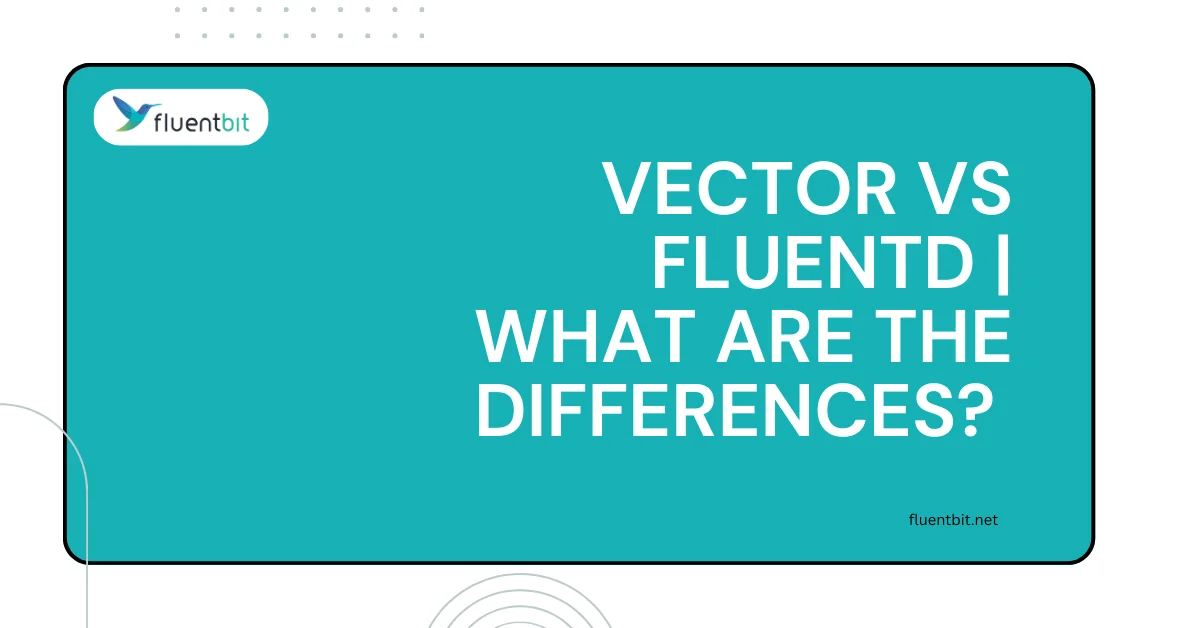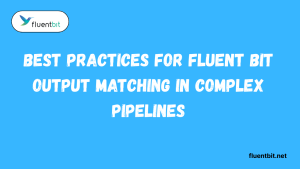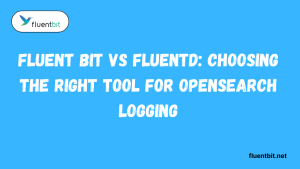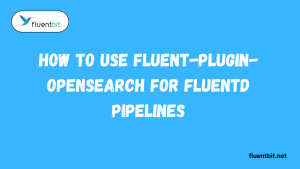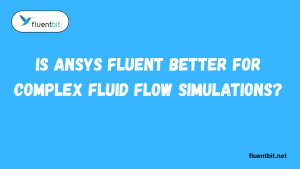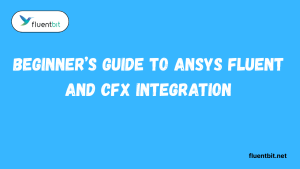Table of Contents
ToggleIntroduction
In today’s fast-paced digital landscape, where businesses rely heavily on complex infrastructure and distributed systems, the need for effective log management has become paramount.
Log aggregation, the process of collecting and centralizing logs from various sources, has emerged as a crucial practice in modern infrastructure.
Two popular open-source log aggregation tools that have gained widespread adoption are Vector and Fluentd. These tools offer robust solutions for collecting, processing, and distributing logs across diverse environments.
As businesses navigate the challenges of managing large volumes of log data, understanding the capabilities and differences between Vector vs Fluentd becomes essential for making informed decisions about their log aggregation strategy.
In this article, we will delve into the importance of log aggregation in modern infrastructure and explore the key features and use cases of Vector vs Fluentd, helping you determine which tool best suits your specific needs.

Compare the Vector vs Fluentd Performance
Vector offers high-performance log processing with its native Rust implementation, providing faster and more efficient data handling. Fluentd is highly extensible but may have a higher overhead due to its Ruby-based architecture, potentially impacting performance in larger setups. Let’s Explore more!
Vector: High Throughput and Low Memory Usage
Vector stands out for its exceptional performance with high throughput capabilities and efficient memory usage. It excels in processing log data swiftly while maintaining a minimal memory footprint.
This makes Vector a preferred choice for environments where performance and resource efficiency are key priorities.
Fluentd: Good Performance with Potential Resource Consumption
Fluentd is known for its solid performance in log aggregation, offering reliable data processing capabilities.
- However, compared to Vector, Fluentd may consume relatively more resources, especially in terms of memory usage.
- While Fluentd delivers good performance, organizations need to consider its resource requirements when deploying it in resource-constrained environments.
In this comparison of Vector and Fluentd’s performance, organizations can weigh the trade-offs between high throughput and low memory usage offered by Vector against the reliable performance of Fluentd with potential resource consumption implications.
Vector vs Fluentd – Features Comparison:
Vector provides a unified platform with built-in support for various sources, sinks, and transforms, all optimized for performance. Fluentd excels in its extensibility with a rich ecosystem of plugins, making it highly customizable but potentially more complex to configure.
Vector: Built-in Support for Logs and Metrics
Vector is a high-performance observability data pipeline that offers built-in support for handling both logs and metrics efficiently. It enables organizations to collect, transform, and route their log data, metrics, and traces to various destinations, providing control over observability data with exceptional speed and reliability.
Fluentd: Extensive Plugin Ecosystem for Data Sources and Destinations
Fluentd distinguishes itself with its extensive plugin ecosystem, offering a wide range of plugins for different data sources and destinations. This ecosystem allows Fluentd users to easily integrate with various systems, applications, and cloud services, enhancing flexibility and adaptability in managing log data across diverse environments.
Deployment Comparison
Vector is designed for easy deployment with pre-built binaries and straightforward configuration, making it quick to set up in various environments. Fluentd requires more setup, often involving plugin management and custom configurations, which can be more complex but offers extensive flexibility.
Vector: Deployment Options (Agent, Aggregator)
Vector provides flexibility in deployment with two working modes: Agent and aggregator. The agent mode facilitates the direct transfer of logs/events from the source to the destination, while the aggregator mode centralizes log processing and distribution. This versatility in deployment options allows organizations to tailor Vector to their specific infrastructure requirements.
Fluentd: Flexibility Across Different Environments
Fluentd stands out for its adaptability across different environments, including physical servers, virtual machines, and containerized environments. This flexibility makes Fluentd a versatile choice for log aggregation in diverse setups, ensuring seamless integration and efficient log management regardless of the infrastructure configuration.
Vector vs Fluentd – Deployment and Ease of Use Comparison
Vector simplifies deployment with its single binary and user-friendly configuration, making it easy to set up and manage across different environments. Fluentd offers extensive customization and a rich plugin ecosystem, but its deployment can be more involved, requiring careful configuration and management.
Vector: Deployment Options (Agent, Aggregator)
Vector provides flexibility in deployment with two working modes: Agent and aggregator. The agent mode facilitates the direct transfer of logs/events from the source to the destination, while the aggregator mode centralizes log processing and distribution. This versatility in deployment options allows organizations to tailor Vector to their specific infrastructure requirements.
Fluentd: Flexibility Across Different Environments
Fluentd stands out for its adaptability across different environments, including physical servers, virtual machines, and containerized environments. This flexibility makes Fluentd a versatile choice for log aggregation in diverse setups, ensuring seamless integration and efficient log management regardless of the infrastructure configuration.
Vector: Configuration Style (YAML)
Vector uses yet another markup language for its configuration, which is a popular and human-readable format. This simplifies the setup process and makes it easier for users to understand and modify the configuration as needed. The straightforward configuration style contributes to Vector’s ease of use.
Fluentd: Potentially Steeper Learning Curve Due to Plugin Configuration
Fluentd’s extensive plugin ecosystem is a strength, but it can also lead to a potentially steeper learning curve for users. Configuring plugins may require more time and effort compared to Vector’s YAML-based configuration. However, once familiar with Fluentd’s plugin system, users can leverage its flexibility to adapt to various use cases
Conclusion
In the ever-evolving world of modern infrastructure, log aggregation has become a critical component for maintaining system health, troubleshooting issues, and ensuring overall operational efficiency.
As organizations navigate the landscape of log aggregation tools, Vector and filebeat have emerged as two popular open-source solutions, each offering unique strengths and capabilities.
When comparing Vector vs Fluentd, it’s clear that both tools excel in their respective areas. Vector stands out for its high performance, low memory usage, and straightforward YAML-based configuration, making it an attractive choice for organizations prioritizing speed and simplicity.
FluentBit, on the other hand, boasts an extensive plugin ecosystem that enables seamless integration with a wide range of data sources and destinations, catering to diverse infrastructure requirements.
FAQs
1. What is the main difference between Vector and Fluentd?
The primary difference between Vector and Fluentd lies in their approach to log aggregation. Vector focuses on high performance, low memory usage, and simplicity, while Fluentd emphasizes flexibility through its extensive plugin ecosystem for integrating with various data sources and destinations.
2. Which tool is better for performance?
Vector outperforms Fluentd in terms of throughput and memory efficiency. Vector is designed for high-performance log processing with a low memory footprint, making it a better choice for environments where performance is a critical factor.
3. Does Fluentd support a wide range of data sources and destinations?
Yes, Fluentd’s strength lies in its extensive plugin ecosystem, which allows it to integrate with a vast array of data sources and destinations. This flexibility makes Fluentd suitable for diverse infrastructure requirements and use cases.
4. How easy is it to configure Vector and Fluentd?
Vector has a simpler configuration style using YAML, which is human-readable and easy to understand. Fluentd, on the other hand, may have a steeper learning curve due to its plugin-based configuration approach, but it offers more flexibility once users are familiar with the system.
5. Can Vector and Fluentd be deployed in different environments?
Yes, both tools offer deployment flexibility. Vector provides agent and aggregator modes, allowing organizations to tailor the deployment to their needs. Fluentd is adaptable across various environments, including physical servers, virtual machines, and containerized setups.
Latest Post:
- Best Practices for Fluent Bit Output Matching in Complex Pipelines
- Setting Up Fluent Bit with Open Telemetry for Unified Observability
- Fluent Bit vs Fluentd: Choosing the Right Tool for OpenSearch Logging
- How to Use fluent-plugin-opensearch for Fluentd Pipelines
- Is Ansys Fluent Better for Complex Fluid Flow Simulations?

